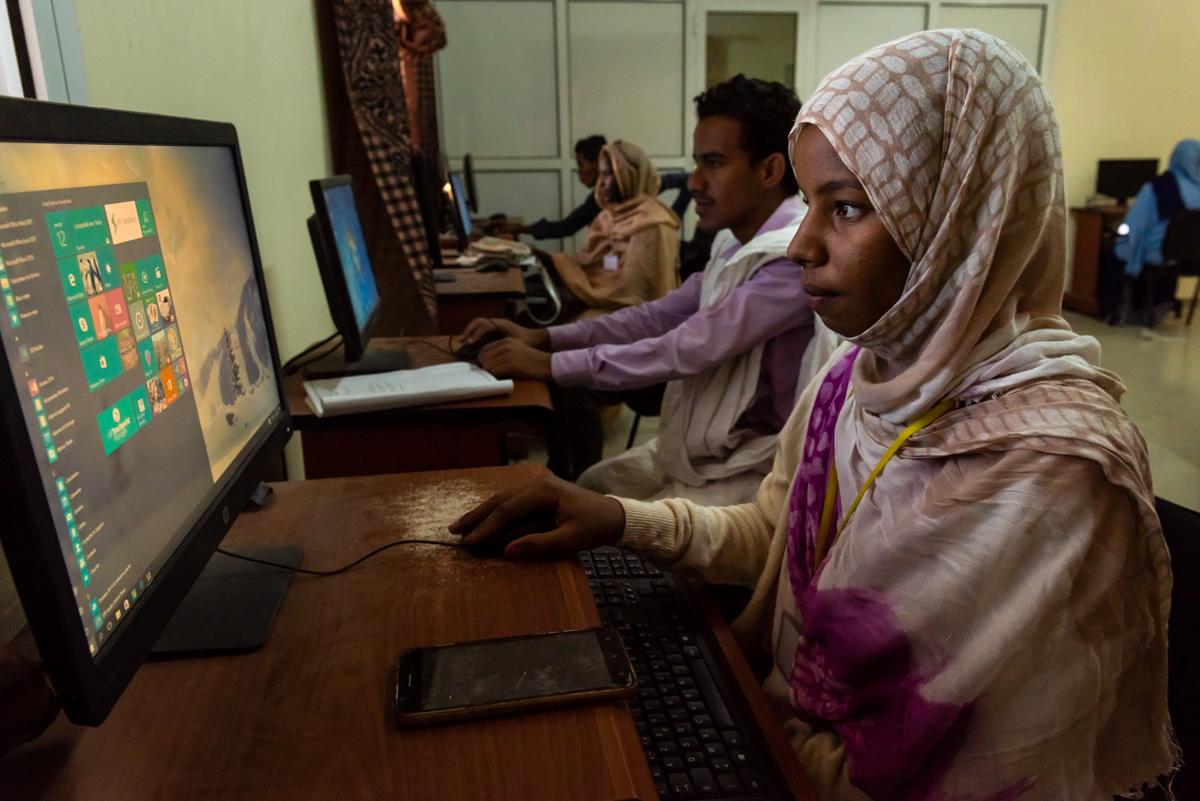The COVID-19 pandemic has accelerated a global digital and data-driven transformation, with more people online for work, leisure, and learning. More time online means increased opportunities for virtual connection, but also poses new and unique challenges.
Digital technologies are a powerful driver of gender equality, giving women and girls new information, opportunities, and resources. But the digital gender divide persists, in part because of social and gender norms and deep-rooted gender stereotypes. This means that many women, especially those from developing countries, face continued challenges in accessing and making use of digital technologies. The rates at which girls and young women are learning to code, for example, continue to trail those of boys and men. And globally, women make up only 29 percent of the STEM workforce, and are less likely than men to have an education in science and tech-related fields.
Even when they do have access to the internet, women and girls often face online violence and harassment in the form of explicit or pornographic messages and cyberstalking. In the European Union, one in 10 women has experienced some form of cyber-harassment since the age of 15. In Pakistan, an estimated 40 percent of women have dealt with various forms of online harassment on. The pandemic has worsened the situation. In nine countries across the Middle East and North Africa, a UN Women survey found online harassment was the most commonly reported type of violence against women.
Online harassment can also lead to offline consequences. In Latin America, the potential for harassment and privacy breaches has been cited as one of the major barriers to women’s access to digital services, particularly in Guatemala and Mexico. The pressure can have devastating effects on women’s mental health, with online violence linked to depression and even self-harm.
We need a safe, affordable, and inclusive internet, one that doesn’t fuel harmful gender stereotypes, silence women’s voices, and imperil women’s safety and rights. Equally, we need digital tools to boost women’s participation and leadership in the digital space. It is not enough for women and girls to simply have access to technology and digital skills; they must also become active agents of change to create a safer and equitable digital future for all.
This responsibility falls on all of us--governments, civil society organizations, the private sector, including tech companies, and law enforcement. Without rights-based governance and ethical guard rails, we risk leaving women and girls further behind in the digital transformation.

 Locations
Locations


